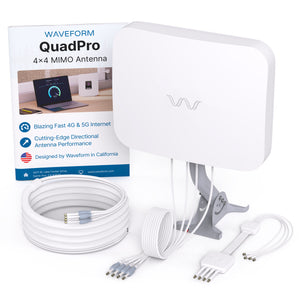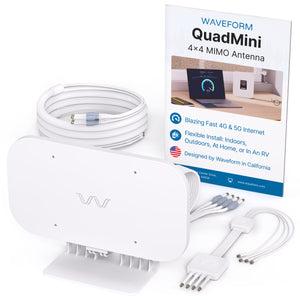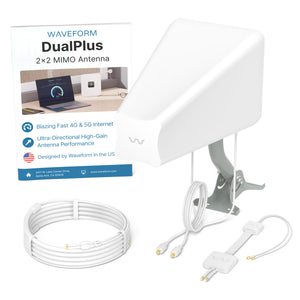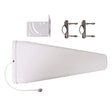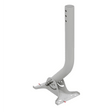In December 2013, the wireless trade group CTIA wrote a letter to the Tom Wheeler and the other commissioners of the FCC announcing that all four of the major carriers had committed to adopting six voluntary measures to make unlocking cell phones easier for consumers. Earlier this week, the FCC announced that it was “proud to report that the country’s major providers have met their commitment.”
I’ve been advocating for a consumer’s right to unlock and modify their devices (cellular or otherwise) for the past three years, so I was particularly curious to check out exactly how each carrier has implemented their own voluntary guidelines. Those guidelines are clearly laid out in the CTIA’s Consumer Code for Wireless Service, but here is a brief summary:
-
Disclosure: Each carrier will post clear, concise and accessible policies for how they will handle unlocking postpaid and prepaid devices.
-
Postpaid policy: Postpaid customer’s phones will be unlocked by carriers for:
- their customers
- former customers with accounts in good standing
- individual owners of eligible devices,
if either:
-
- their contract has ended,
- their device financing plan has been completed,
- or an early termination fee has been paid.
-
Prepaid phones will be unlocked no later than one year after initial activation, as long as “reasonable time, payment or usage requirements” are met.
-
Notification: Carriers will notify customers that their devices are eligible for unlocking or automatically unlock users device once they’re eligible for a free unlock. For prepaid customers, that notice may occur at the point of sale or via a notice on the website, rather than direct communication.
-
Response time: Carriers will unlock devices within 2 days of receiving a request, or at least send a request to the OEM within 2 days, or explain why the device can’t be unlocked or they might need more time.
-
Deployed personnel: Carriers will unlock devices for deployed military personnel who are customers in good standing once they show deployment papers.
Based on these guidelines, I went around studying each carrier’s unlocking policies to check how they compare.
AT&T
-
Disclosure: AT&T provides clear instructions online at this URL.
-
Postpaid policy: AT&T will unlock postpaid phones for their own customers whose phones have been active for at least 60 days. They’ll also unlock devices for past customers, and for people who have bought a second-hand device, as long as the phone is not stolen or actively being used on someone else’s account.
-
Prepaid policy: Prepaid AT&T devices will be unlocked as long as they have been active for at least 60 days and have no unpaid balance.
-
Notification: I was unable to find any information about whether AT&T has implemented any notification system to let prepaid customers know of their unlocking eligibility. I spoke to two customer service representatives who gave me conflicting accounts of how notifications might be delivered, and the official unlocking website was unclear.
-
Response time: AT&T says on this page that they will unlock phones within 2 business days.
-
Deployed personnel: AT&T will unlock phones and tablets as long as personnel and provide proof of deployment. But AT&T, “at its sole discretion, may limit the number of devices military personnel can unlock” - it’s not clear exactly how many devices a potential limit might set in at.
Verizon
-
Disclosure: Verizon’s full unlocking policy is available here.
Verizon doesn’t lock any of their 4G LTE or 3G devices, other than their “Phone-in-the-Box” devices, which are trivially unlockable with either the code “000000” or “123456.” So they automatically receive credit in all the other categories.
Sprint
-
Disclosure: Sprint provides information about their unlocking policy online here. I’m not sure the policy can be described as “clear, concise and accessible,” however. The policy described on that page only applies to postpaid devices. The policy for prepaid devices is hidden two links away at this URL. A strange and artificial distinction is made between “domestic” and “international” unlocking, the latter of which is only available to current Sprint customers. The “domestic” unlocking category is again broken down into two subcategories: “Master Subsidy” and “Domestic SIM” unlocks.
-
Postpaid policy: Sprint’s prepaid unlocking policy breaks unlocking into two categories, “for domestic usage” and “for international travel.” Sprint says that they will only perform an “International SIM unlock” for active customers. There appears to be no provision for unlocking phones for international use if you are not an active Sprint customer, which is one of the requirements of the CTIA’s “Consumer Code.” Furthermore, they place restrictions on the number of devices you can unlock: for example, consumers don’t qualify for an “international” unlock if they’ve unlocked a different phone in the past 12 months.
-
Prepaid policy: Sprint says on this page that it will unlock a prepaid device if “The device has been active on the associated account for at least 12 months with the account active at that time.” Though this is a bit confusing, the FAQ indicates that they “may” unlock devices whose accounts are in good standing, even if you are not the original owner. We tentatively give them the benefit of the doubt, even though the language they use is very unclear.
-
Notification: Sprint says that they will “generally” notify postpaid users via SMS or a notice in their bill if they are eligible to have their device unlocked. Postpaid users are only notified via Sprint’s website.
-
Response time: Sprint doesn’t indicate how quickly they’ll process unlocks.
-
Deployed personnel: Sprint won’t unlock more than 1 device per 12 months, which is a restriction that doesn’t really abide with CTIA’s Consumer Code. What happens if a user’s phone or tablet is damaged or breaks while deployed?
T-Mobile
-
Disclosure: T-Mobile’s unlocking policies are described on this page.
-
Postpaid policy: T-Mobile will unlock postpaid devices but adds restrictions preventing consumers from unlocking more than 2 devices per line of service in a 12 month period. They also require devices on their monthly plans to have been active for at least 40 days, even if the contract expires after a month under T-Mobile’s uncarrier policies and all dues have been paid. That requirement (basically “the length of completed contract must be longer than 40 days”) violates CTIA’s Consumer Code, which states that consumers should be able to unlock any device once it is out of contract.
-
Prepaid policy: T-Mobile will unlock prepaid devices, but strangely they require that the “The [prepaid] account must not be canceled and in good standing.” That means if you buy a prepaid device, use it for a year then cancel your service, you can’t get your phone unlocked. They also have a clause saying that “Mobile may request proof of purchase or additional information in its discretion.” Hardly a clear-cut policy.
-
Notification: T-Mobile doesn’t mention whether they’ll notify prepaid or postpaid customers of their unlock eligibility.
-
Response time: T-Mobile says they’ll provide unlock codes within 2 business days or provide further information about timing.
-
Deployed personnel: T-Mobile will unlock phones for deployed military personnel upon provision of deployment papers.
What’s missing: interoperability
The most significant missing component from the consumer code is a commitment from carriers to accept unlocked devices on their networks. This is a critical piece of what makes unlocking valuable - the ability to use devices on other networks. Some carriers, most notably Sprint, specifically say that they will not activate phones that were originally sold by another carrier on their network. That restriction even applies to their own MVNOs - so a Virgin Mobile phone that runs on Sprint’s network can’t be used on Sprint even if Virgin Mobile unlocks it for you.























